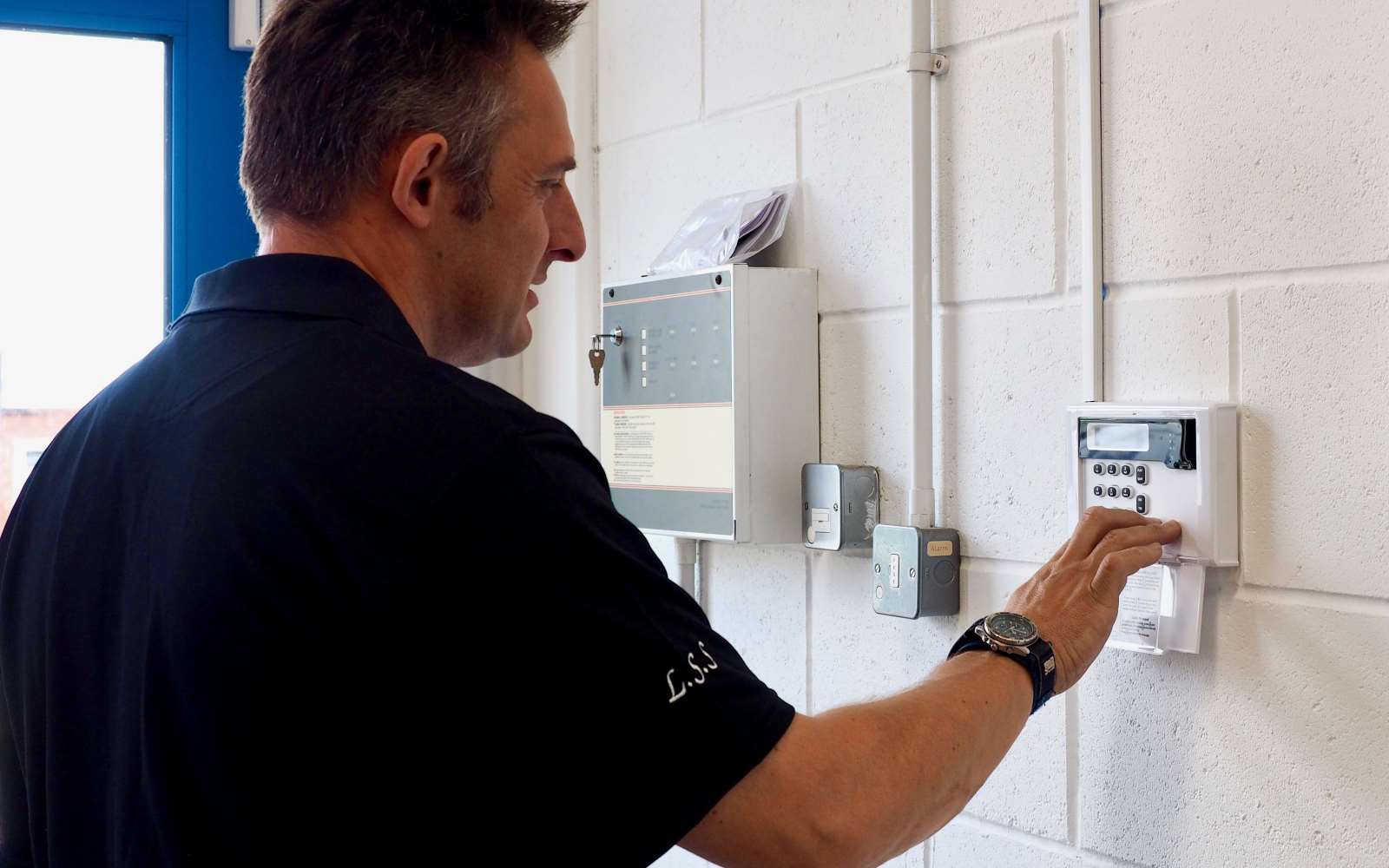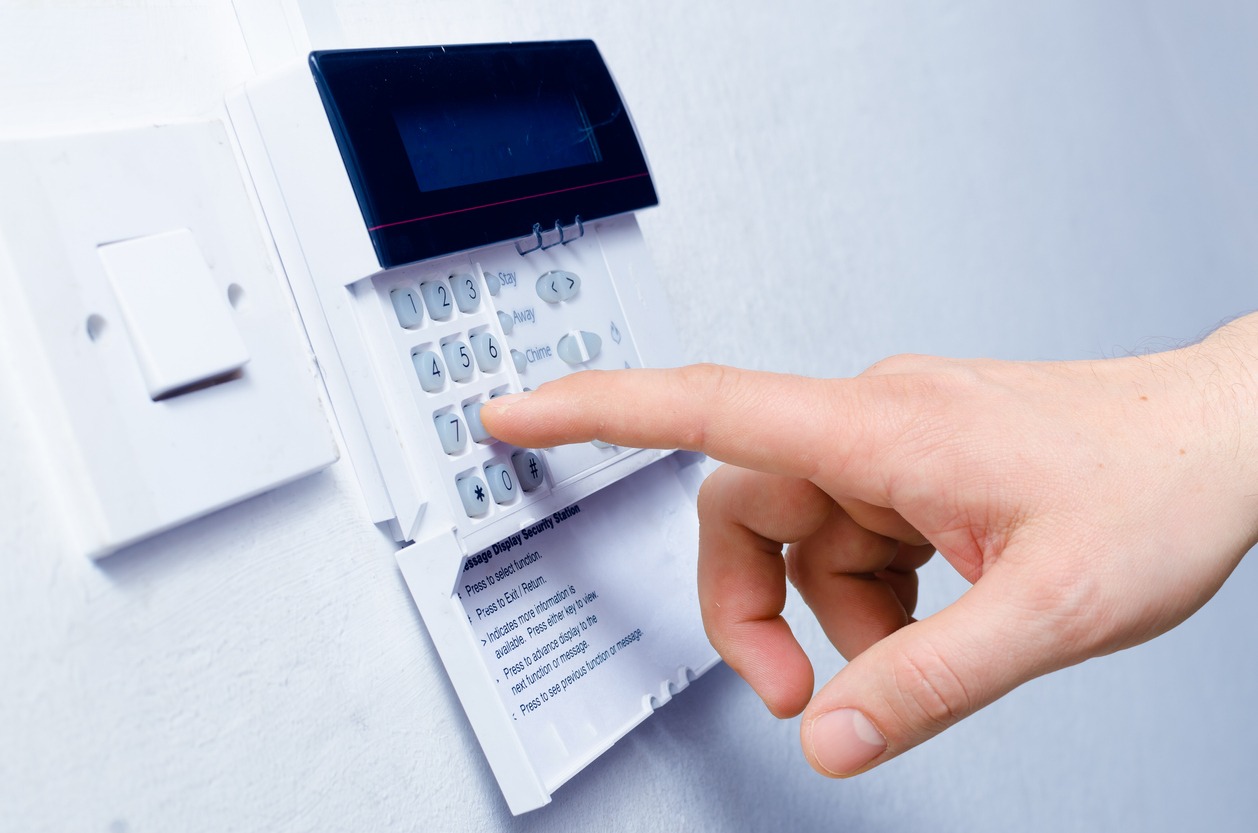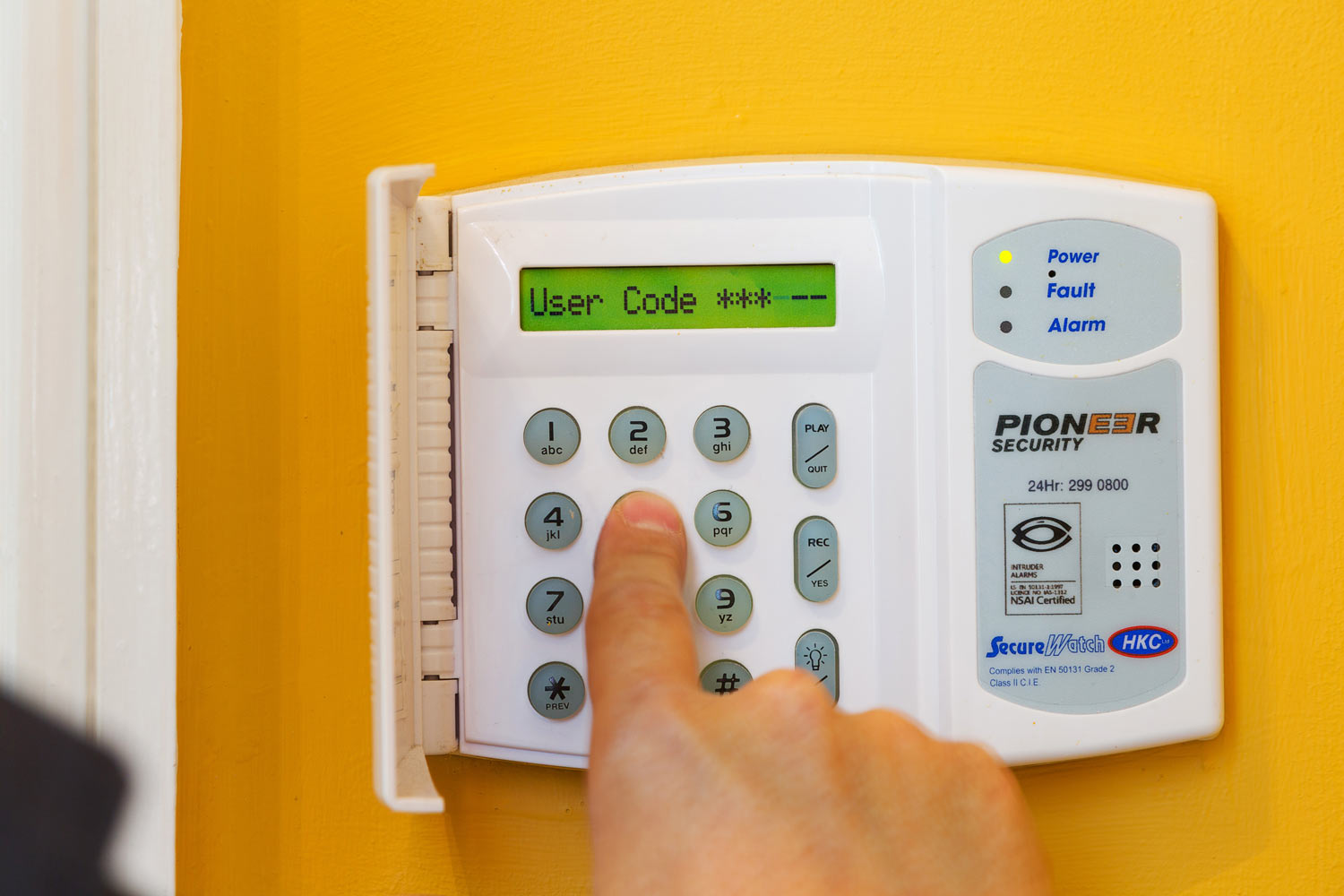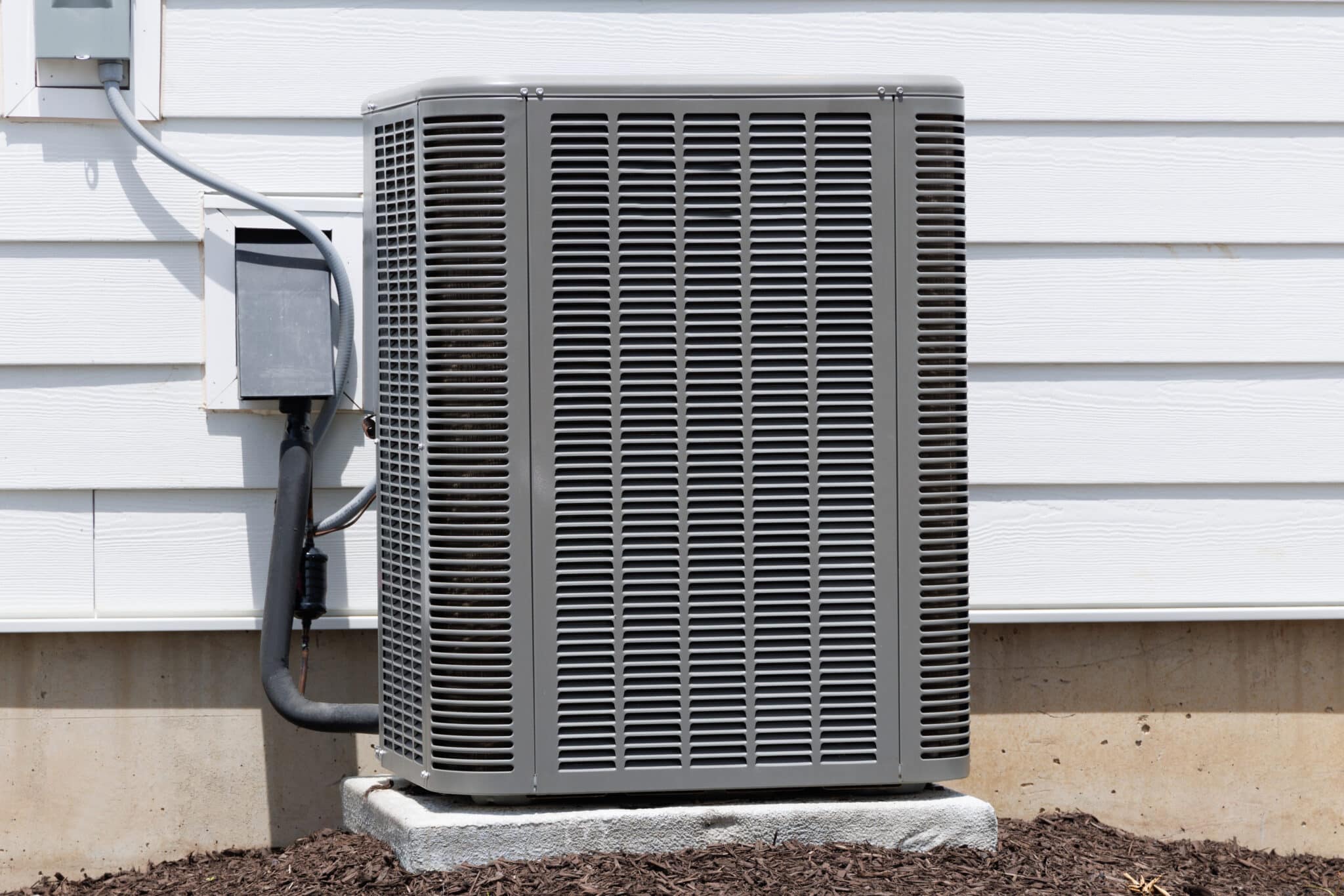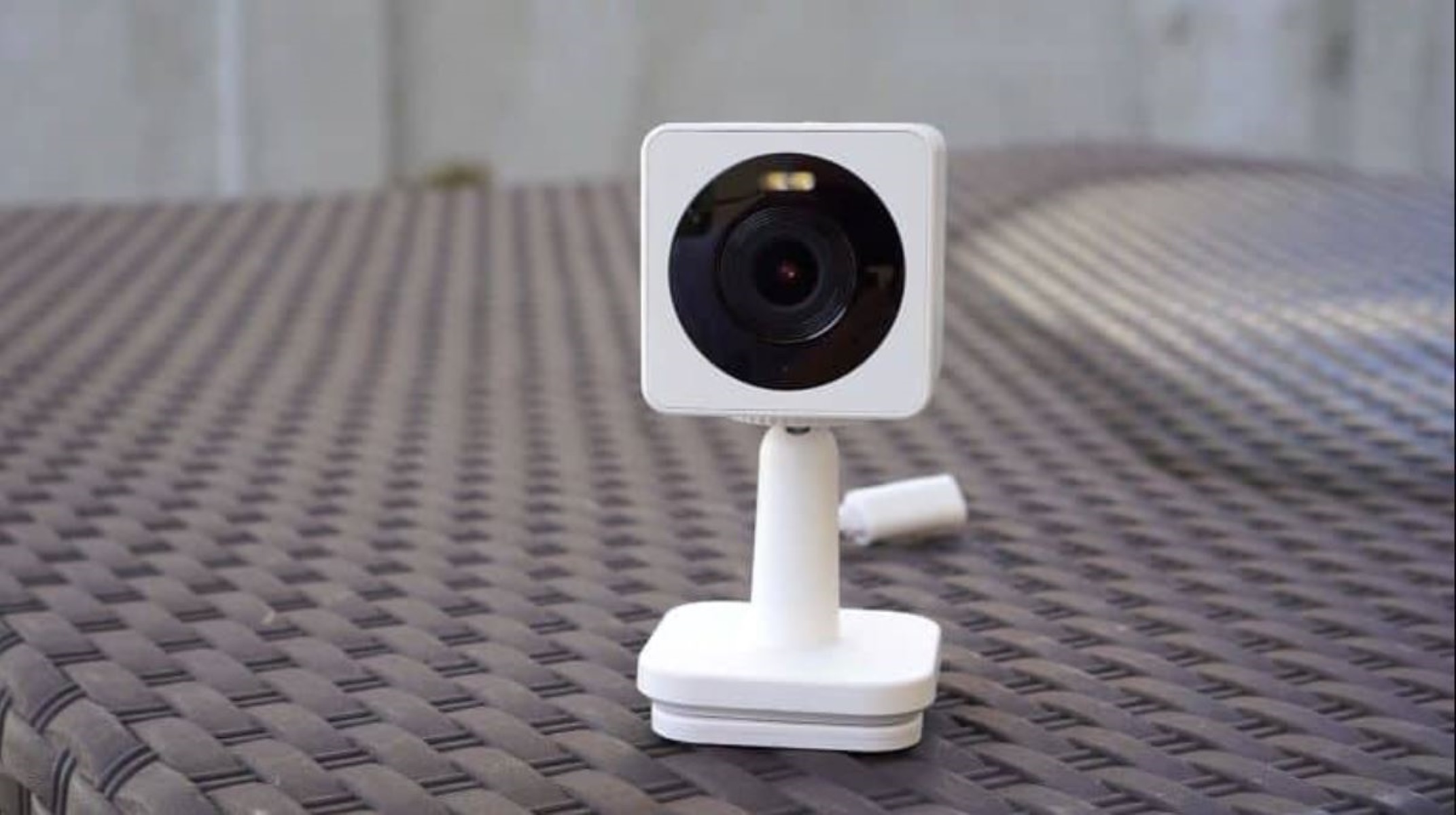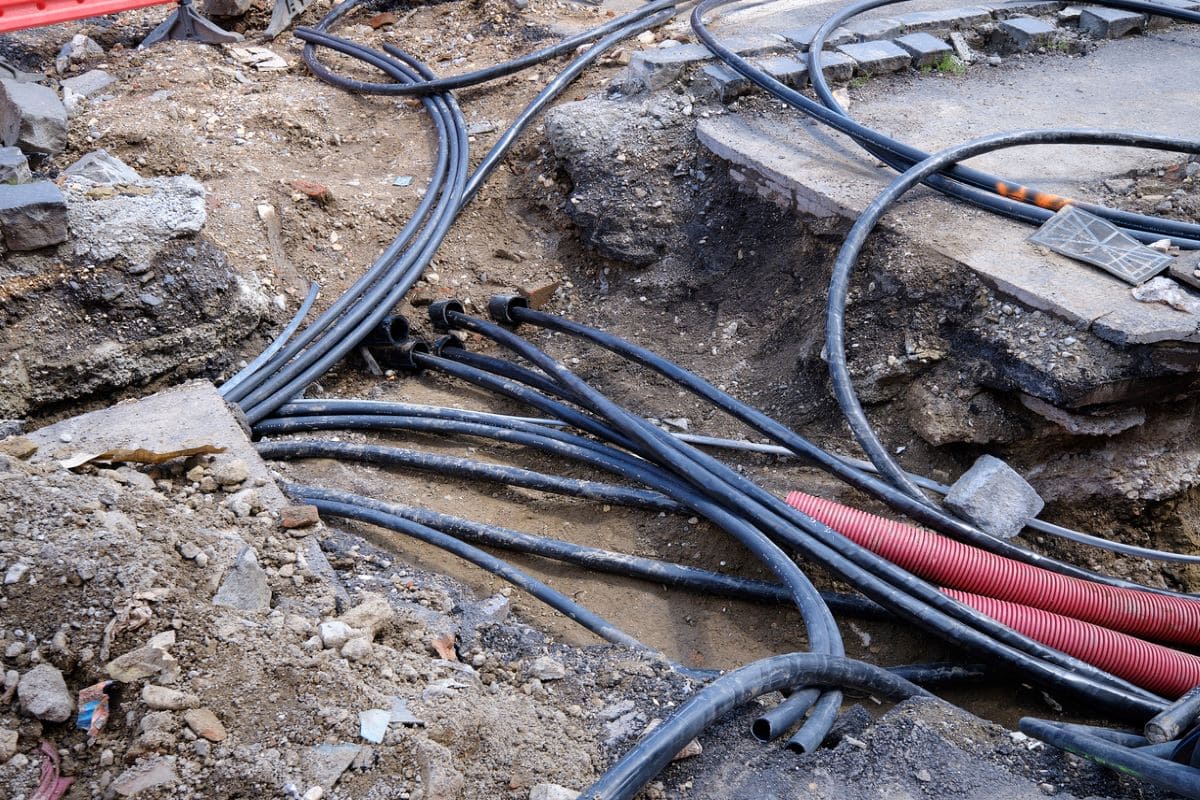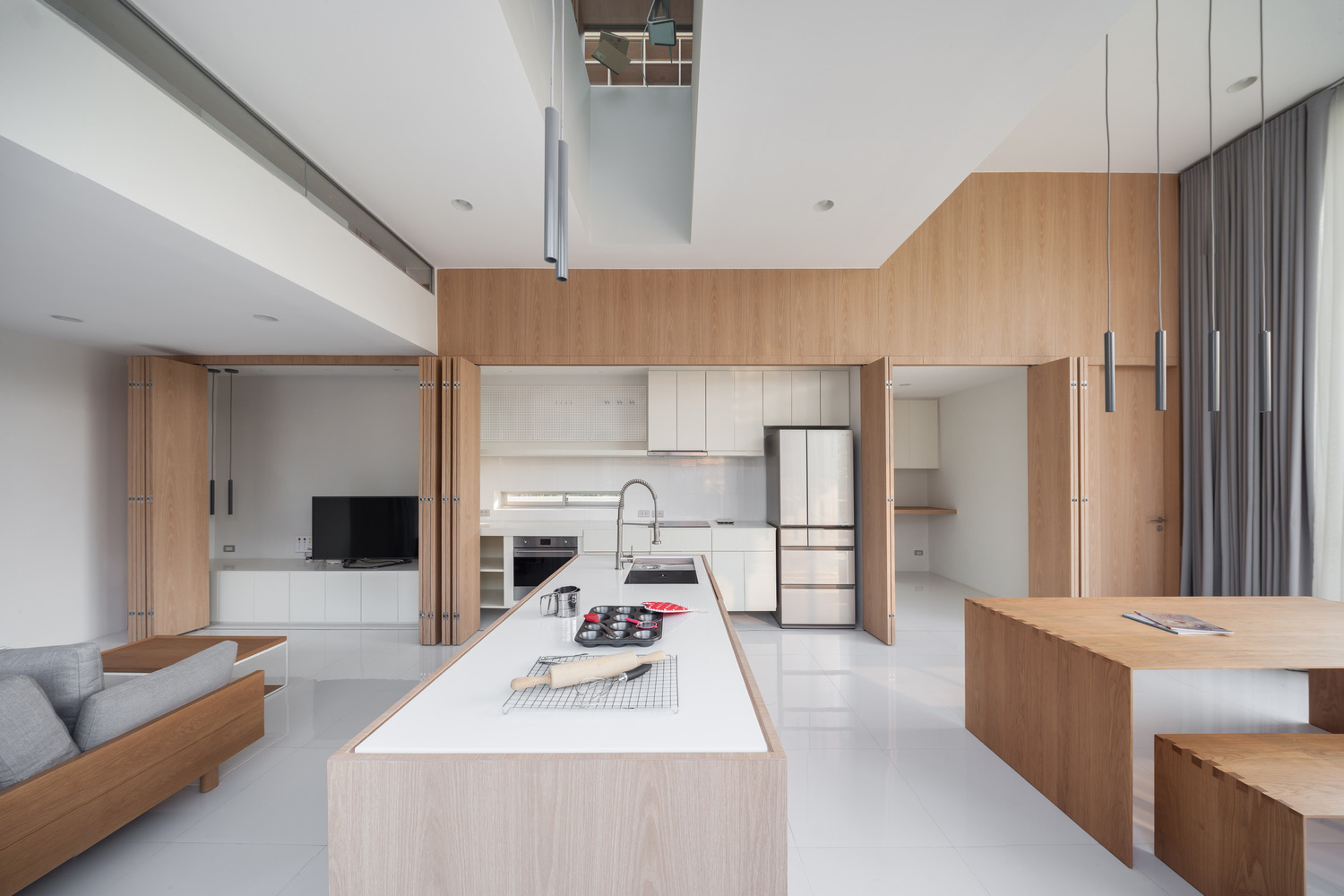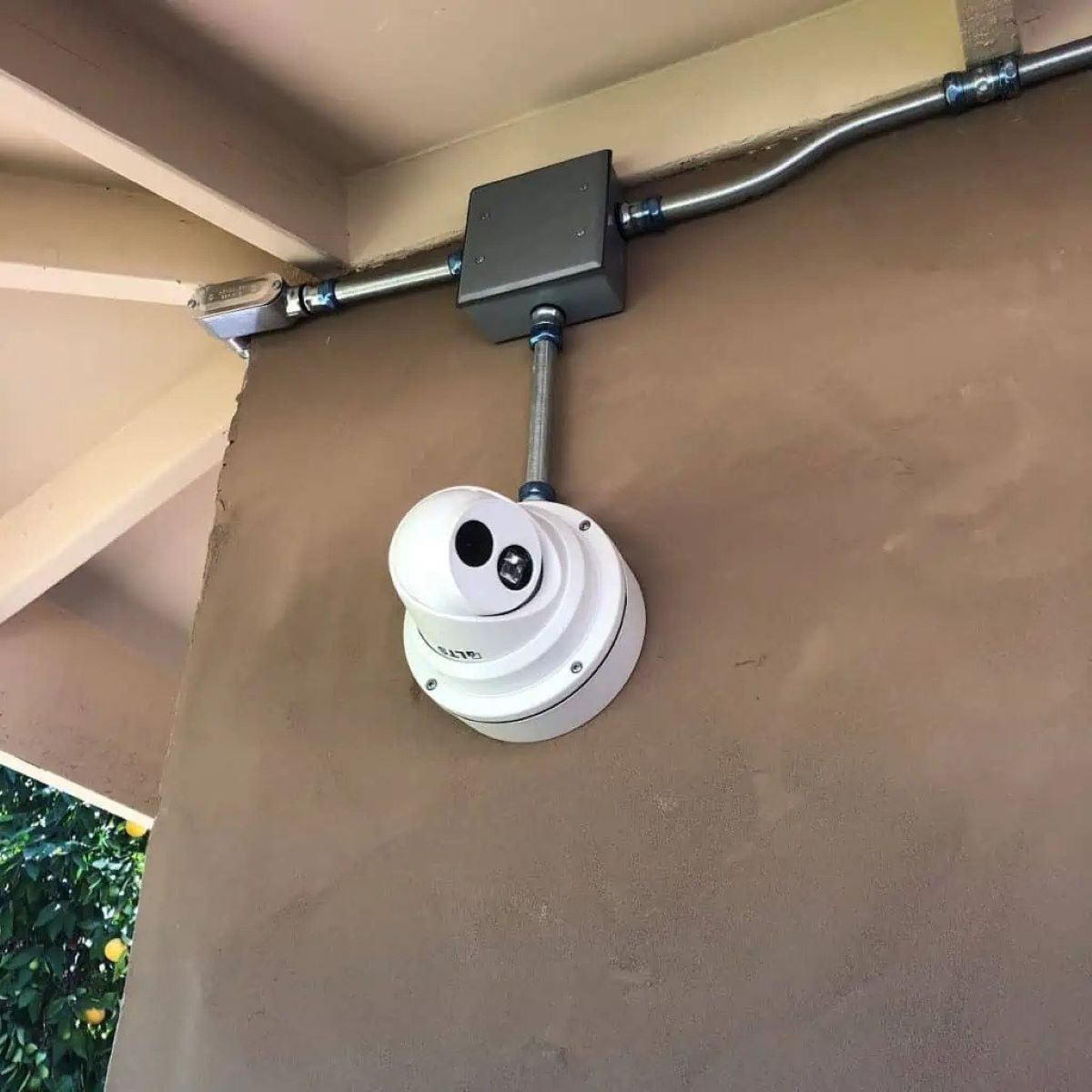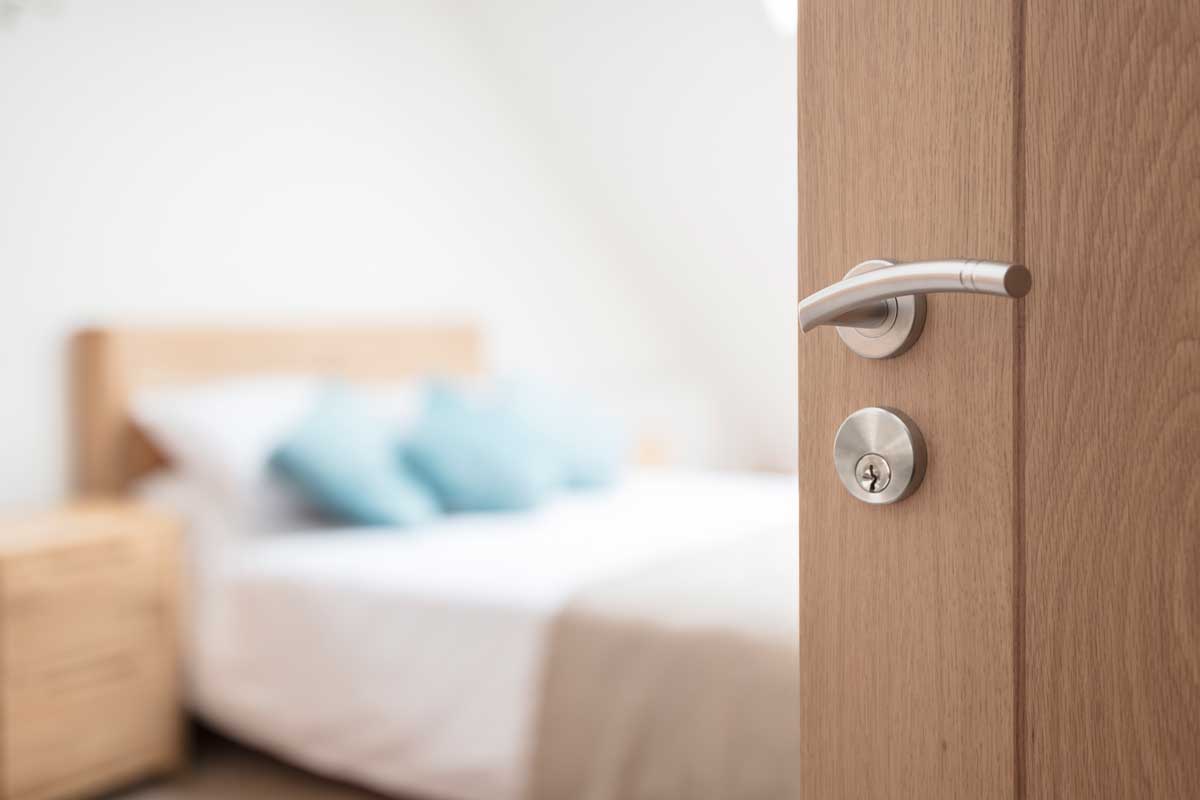Home>Home Security and Surveillance>8 Reasons Why You Should Have A CCTV System At Home
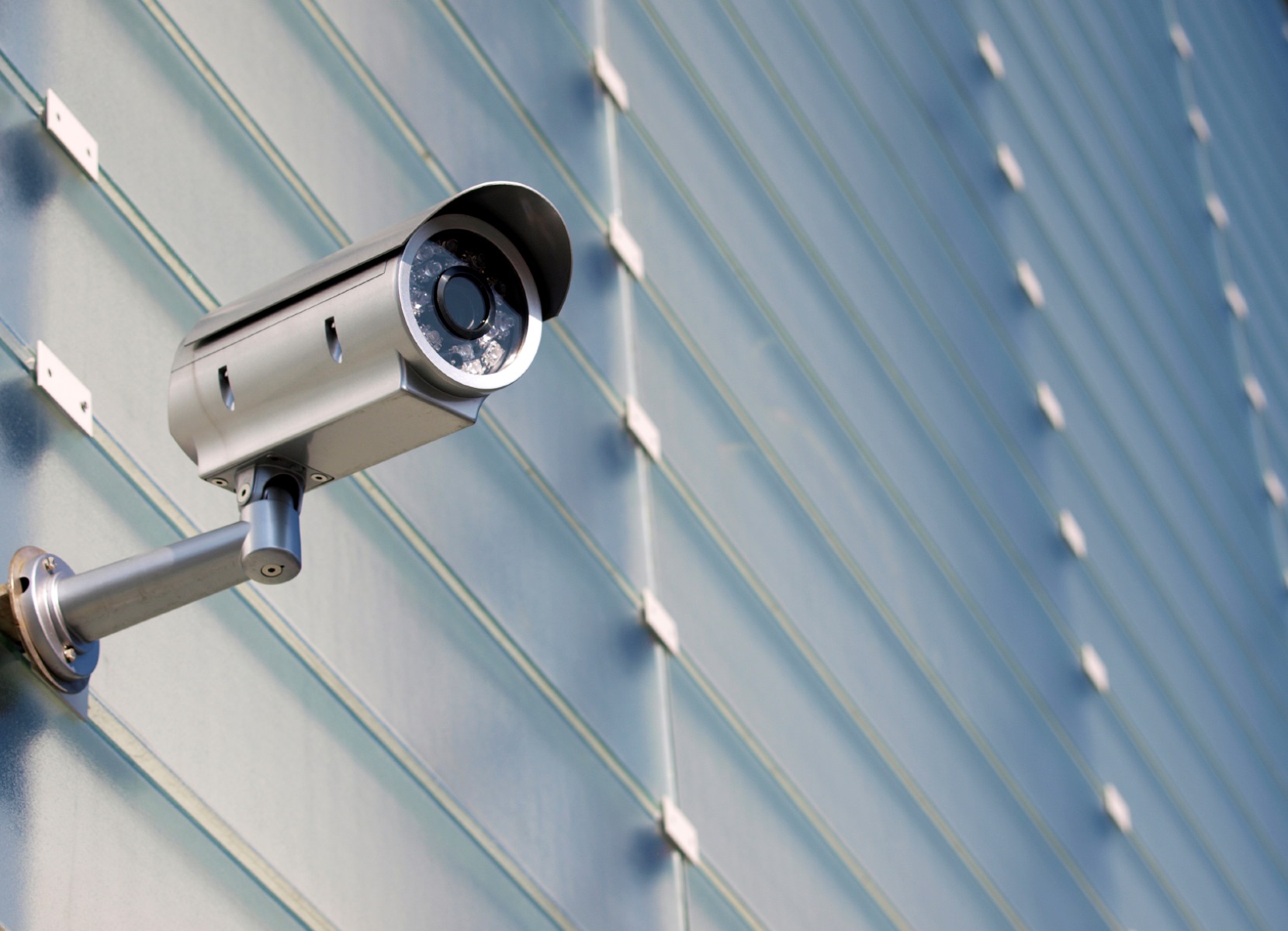

Home Security and Surveillance
8 Reasons Why You Should Have A CCTV System At Home
Modified: March 6, 2024
Improve your home security and surveillance with a CCTV system. Discover the top 8 reasons why it's essential for protecting your property and loved ones.
(Many of the links in this article redirect to a specific reviewed product. Your purchase of these products through affiliate links helps to generate commission for Storables.com, at no extra cost. Learn more)
Introduction
Your home is your sanctuary, a place where you and your loved ones should feel safe and secure. In today’s world, where crime rates continue to rise, it is crucial to take proactive measures to protect your home and the people within it. One of the most effective ways to enhance the safety and security of your home is by installing a CCTV (Closed-Circuit Television) system.
A CCTV system utilizes cameras to monitor and record activities in and around your home. These cameras are connected to a central monitoring system, allowing you to keep an eye on your property both in real-time and through recorded footage. With technological advancements, CCTV systems have become more advanced and affordable, making them accessible to homeowners of all budgets.
In this article, we will explore eight compelling reasons why you should seriously consider investing in a CCTV system for your home:
Key Takeaways:
- Having a CCTV system at home enhances safety and security by deterring criminals, providing valuable video evidence, and offering remote monitoring capabilities. It also brings potential insurance benefits and peace of mind.
- While using a CCTV system, it’s important to balance security and privacy, comply with legal requirements, and be mindful of privacy concerns. Modern CCTV systems are easy to install and maintain, cost-effective, and offer flexibility and scalability.
Safety and Security
When it comes to the safety and security of your home, nothing is more important. A CCTV system acts as an extra set of eyes, constantly monitoring your property and alerting you to any suspicious activities. The presence of visible cameras can also serve as a deterrent, discouraging potential intruders from targeting your home.
By installing CCTV cameras at strategic locations, such as entrances, windows, and vulnerable areas, you can maintain a comprehensive surveillance system. In the event of a break-in or any other security breach, you will have valuable evidence that can aid law enforcement in apprehending the culprits and recovering stolen items.
In addition to protecting against external threats, CCTV systems can also help ensure the safety of your family members. You can monitor children playing in the backyard, keep an eye on elderly family members, or even supervise the activities of caregivers or babysitters.
Moreover, modern CCTV systems often come equipped with advanced features like motion detection and facial recognition technology. This ensures that you are notified immediately of any suspicious movement or unauthorized access, allowing you to take prompt action to mitigate the risk.
Overall, having a CCTV system at home provides a sense of security by giving you the ability to monitor and protect your property and loved ones, even when you are away.
Crime Prevention
Installing a CCTV system at home significantly reduces the likelihood of becoming a target for criminals. The presence of cameras acts as a strong deterrent, as criminals are more likely to move on to an easier target rather than risk being caught on camera. In fact, studies have shown that neighborhoods with visible CCTV cameras experience a decrease in crime rates.
When potential burglars see that your property is equipped with a CCTV system, they are less likely to attempt a break-in. They understand that their actions will be recorded and can be used as evidence against them. This knowledge alone can discourage criminal behavior and protect your home from becoming a target.
Moreover, CCTV cameras can help prevent crimes from happening outside your home as well. They allow you to monitor the activity in your neighborhood, ensuring that you are aware of any suspicious or potentially dangerous situations. By sharing footage with local law enforcement, you can contribute to the overall safety of your community.
In the unfortunate event of a crime, having a CCTV system can be crucial in providing crucial evidence. The recorded footage can be invaluable during investigations, helping law enforcement identify suspects and gather evidence for prosecution. It can also help in recovering stolen items and bringing the perpetrators to justice.
By investing in a CCTV system, you are not only protecting your own home but also playing a role in deterring crime in your surroundings. The knowledge that your property is under surveillance can create a safer environment for you, your family, and your neighbors.
Deterrence
One of the most significant advantages of having a CCTV system at home is the power of deterrence it provides. The mere presence of visible cameras can deter potential criminals from targeting your property, as they know their actions are being monitored and recorded.
When burglars see CCTV cameras installed on the exterior of your home, it sends a strong message that your property is well-protected and not an easy target. Criminals are less likely to take the risk of being caught on camera, as it increases their chances of being identified and apprehended.
In addition, CCTV cameras placed strategically at entry points like front doors, windows, or garage areas can act as a deterrent for opportunistic thieves. The sight of cameras watching their every move prompts them to think twice before attempting a break-in.
Moreover, the deterrence factor of CCTV systems extends beyond your own property. When potential criminals observe CCTV cameras in your neighborhood, it creates a sense of security and makes them think twice about committing any illegal activities in the area. This ripple effect helps in reducing crime rates and enhancing the overall safety of the community.
It’s important to note that the effectiveness of deterrence relies on the visibility of the CCTV cameras. Placing signs indicating the presence of surveillance cameras and ensuring that the cameras are easily visible act as additional deterrents. The goal is to make it clear to potential criminals that your home is protected and not worth the risk.
By investing in a CCTV system and leveraging its deterrence capabilities, you are sending a powerful message that your home is not an easy target. The peace of mind that comes with knowing that potential intruders are dissuaded by the presence of cameras is invaluable in safeguarding your property and loved ones.
Video Evidence
One of the most valuable benefits of having a CCTV system at home is the ability to capture and retain video evidence. In the unfortunate event of a crime or security incident, the recorded footage can be instrumental in identifying the perpetrators, understanding the sequence of events, and providing evidence for legal proceedings.
CCTV cameras capture high-quality video footage that can be stored digitally or on physical storage devices. This footage can be reviewed and analyzed at a later time, allowing you to gather crucial information about the incident. Whether it’s a break-in, vandalism, or an act of trespassing, having video evidence can significantly aid law enforcement in their investigations.
When crimes occur, memories can be unreliable and distorted over time. Having concrete video evidence can help eliminate any discrepancies or false narratives, providing an accurate account of what transpired. This can be especially useful in situations where the word of the victim is pitted against that of the perpetrator.
Video evidence can also prove vital in insurance claims. If your home is damaged or if valuable items are stolen, having recorded footage can help validate your claim and support the assessment of the loss or damage. Insurance companies often require solid evidence to process claims efficiently, and CCTV footage serves as a reliable source of evidence in such situations.
Furthermore, CCTV systems with advanced features like motion detection and facial recognition can enhance the effectiveness of the video evidence. Motion detection allows the cameras to start recording when movement is detected, ensuring that any significant events are captured even if you are not actively monitoring the system. Facial recognition technology, on the other hand, enables the identification of specific individuals, providing valuable information for investigations.
Having video evidence not only strengthens your case but also increases the chances of successful prosecution and recovery of stolen items. It serves as undeniable proof that can make a significant difference in resolving criminal activities and protecting your rights and interests.
Read more: How Often Should You Have HVAC Serviced
Remote Monitoring
One of the remarkable features of modern CCTV systems is the ability to remotely monitor your home from anywhere at any time. With the advancement of technology, you can access live feeds and recorded footage of your CCTV cameras through mobile devices or computers.
Remote monitoring offers convenience and peace of mind, especially when you are away from home for work, travel, or any other reason. Whether you are at the office, on vacation, or simply running errands, you can keep an eye on what’s happening at your property with just a few taps on your smartphone.
This capability allows you to stay connected and informed about any activity or security events in real-time. You can instantly receive notifications and alerts regarding suspicious movements, unauthorized access, or any other predetermined triggers. This immediate awareness empowers you to take immediate action, such as contacting the authorities or alerting neighbors, if necessary.
Remote monitoring also enables you to monitor the activities of contractors, service providers, or even house sitters. You can ensure that everything is running smoothly and that your property is being handled responsibly in your absence.
Moreover, remote monitoring provides an added layer of security during emergencies. In the event of a fire, carbon monoxide leak, or medical emergency, you can assess the situation remotely and guide emergency responders with more accurate information. This can save valuable time and potentially help minimize the damage or risk to your property and loved ones.
Additionally, remote monitoring is not limited to your CCTV cameras alone. Many CCTV systems integrate with smart home automation technologies, allowing you to control various aspects of your home remotely. You can adjust the temperature, turn on lights, lock or unlock doors, and even activate alarm systems, all from your mobile device.
Overall, remote monitoring provides unmatched flexibility and control over your home security. It keeps you connected and informed, offering peace of mind knowing that you can stay vigilant even if you’re miles away.
Peace of Mind
One of the greatest benefits of having a CCTV system at home is the peace of mind it brings. Knowing that your property is under constant surveillance provides a sense of security and tranquility, allowing you to rest easy and enjoy peace of mind.
When you leave your home, whether it’s for a few hours or an extended period, worries about the safety and security of your property can linger in your mind. But with a CCTV system in place, you can alleviate these concerns. You can check in on your home remotely, ensuring that everything is as it should be.
Having visible cameras can act as a deterrent, not only for potential intruders but also for other unwanted activities. Whether it’s monitoring deliveries, keeping an eye on neighborhood activities, or ensuring the safety of your children playing outside, a CCTV system provides a sense of control and visibility that contributes to your peace of mind.
In case of any security incidents, you can quickly review the recorded footage to understand what transpired. This access to information helps you make informed decisions and take appropriate actions to address any concerns or vulnerabilities in your home security.
Furthermore, having a CCTV system at home can also enhance your overall sense of personal safety. Knowing that there are cameras watching the entry points and vulnerable areas of your property can provide reassurance, especially during the night or when you are alone.
Not only does a CCTV system provide peace of mind for homeowners, but it also extends to your family members. The knowledge that your loved ones are being protected and monitored can alleviate their concerns about safety, especially for older family members or children who may stay at home alone at times.
Having a CCTV system is not just about preventing crime; it’s about cultivating a sense of security and peace of mind in your own home. By proactively investing in your home security, you can enjoy the serenity and confidence that comes with knowing your property and loved ones are protected.
Insurance Benefits
Installing a CCTV system in your home not only enhances your security but can also provide significant insurance benefits. Many insurance companies offer discounts on homeowner’s insurance premiums for homes equipped with CCTV systems, recognizing the added level of protection they provide.
By having a CCTV system in place, you are taking proactive measures to mitigate the risk of theft, vandalism, and other security incidents. Insurance companies view this as a responsible action that reduces the likelihood of claims being made, leading to lower insurance premiums.
When you approach your insurance provider with the information that you have installed a CCTV system, they will assess the risk level of your property differently. This reassessment often results in a reduction in your insurance premium since you have taken steps to improve the security and reduce the potential for losses.
In some cases, insurance providers may require proof of a functioning CCTV system or request access to the recorded footage in order to validate claims. The recorded video evidence from your CCTV system can provide substantial support for your insurance claim, enabling a smoother and more efficient claims process.
It’s important to check with your insurance provider to understand their specific requirements and the potential discounts or benefits available for having a CCTV system. The savings on insurance premiums, along with the enhanced security, make the investment in a CCTV system a wise financial decision.
Furthermore, in the unfortunate event of a break-in or security breach, CCTV footage can play a crucial role in accurately documenting the incident, supporting your insurance claim, and ensuring a fair and timely settlement. The evidence captured by your CCTV system serves as undeniable proof of losses or damages, bolstering your case with the insurance company.
Overall, having a CCTV system in your home can lead to significant insurance benefits. Not only can it lower your insurance premiums, but it also provides the evidence needed for potential claims, giving you peace of mind that your investment is well-protected.
When installing a CCTV system at home, make sure to place cameras in areas with high visibility and cover all entry points to maximize security coverage.
Home Automation Integration
One of the key advantages of modern CCTV systems is their ability to integrate seamlessly with home automation technologies. This integration not only enhances the functionality of your CCTV system but also allows for greater convenience and control over your home security.
With home automation integration, you can connect your CCTV system to other smart devices, such as door locks, motion sensors, lighting systems, and alarm systems. This creates a comprehensive and interconnected security ecosystem that can be controlled and monitored from a single platform.
For example, you can set up rules and triggers that automatically activate specific actions when the CCTV system detects motion or other predefined events. This means that if a camera detects movement in a specific area, it can trigger the lights to turn on or an alarm to sound, discouraging intruders and alerting you to the potential security breach.
In addition, home automation integration allows for convenient control and management of your CCTV system. You can easily access live video feeds, review recordings, and adjust camera settings all from a centralized smart home control panel or through a mobile app on your smartphone or tablet.
Integration with voice assistants, such as Amazon Alexa or Google Assistant, adds another layer of convenience. You can simply use voice commands to access your CCTV system, view camera feeds, or review recorded footage, allowing for a hands-free and effortless surveillance experience.
This integration also enables remote access and control of your CCTV system. Whether you are at work, traveling, or away from home, you can still monitor and manage your CCTV system through your mobile device. You can receive real-time alerts, view video feeds, and even control other smart devices linked to the system, providing you with enhanced convenience and peace of mind.
Moreover, integrating your CCTV system with a home automation platform opens up opportunities for advanced automation scenarios. For example, you can set up routines that automatically Arm or Disarm your CCTV system when you leave or return home, providing seamless security as you move in and out of your property.
Overall, the integration of your CCTV system with home automation technologies offers enhanced convenience, control, and security. It allows for a more comprehensive and streamlined approach to home protection, ensuring that your CCTV system works in harmony with other smart devices to provide a robust and efficient security solution.
Cost-Effectiveness
Investing in a CCTV system for your home is not only a wise security decision but also a cost-effective one in the long run. While the initial upfront cost may seem significant, the benefits and savings over time make it a worthwhile investment.
Firstly, the presence of a CCTV system acts as a deterrent, reducing the likelihood of break-ins and other security incidents. By preventing potential crimes, you can avoid the costly consequences of theft, property damage, and loss of valuable possessions.
In the event of a security breach, having a CCTV system provides valuable video evidence that can aid in the identification, apprehension, and prosecution of criminals. This evidence can significantly increase the chances of recovering stolen items and obtaining justice. The financial impact of recovering stolen goods and potentially avoiding insurance claims or deductibles can be substantial.
Insurance companies recognize the added security value of CCTV systems and often offer discounts on homeowner’s insurance premiums. These savings, spread over the life of the CCTV system, can offset a portion of the initial investment, making it more cost-effective in the long term.
Additionally, the advancements in technology have made CCTV systems more affordable and accessible than ever before. There is a wide range of options available to fit different budgets and requirements. Whether you opt for a basic system or a more advanced one with additional features, you can find a solution that meets your needs without breaking the bank.
Installation and maintenance costs of CCTV systems have also become more reasonable. Many systems are easy to install, allowing homeowners to set them up themselves without the need for professional installation. This saves on installation fees and reduces overall costs.
Furthermore, modern CCTV systems are designed to be low-maintenance, requiring minimal upkeep. Regular maintenance involves basic tasks such as cleaning camera lenses, checking connections, and ensuring the system is operating effectively. This helps to avoid costly repairs and extends the lifespan of the system.
Lastly, the peace of mind that comes with having a CCTV system is priceless. The sense of security and reassurance that your home and loved ones are protected is invaluable. This intangible benefit contributes to your overall well-being and enhances your quality of life.
All things considered, the cost-effectiveness of a CCTV system lies not only in its ability to prevent and mitigate security incidents but also in the peace of mind it provides. By safeguarding your home and assets, while simultaneously offering potential savings on insurance premiums, a well-implemented CCTV system proves its worth over time.
Easy Installation and Maintenance
One of the advantages of modern CCTV systems is their ease of installation and maintenance. Unlike earlier complex and cumbersome systems that required professional assistance, today’s CCTV systems are designed with user-friendly features that make installation and maintenance a hassle-free process.
Installation of a CCTV system can often be done as a do-it-yourself project, eliminating the need for costly professional installation services. Many CCTV systems are designed for easy setup and come with detailed instructions and user-friendly interfaces. With a few basic tools and a little bit of time, you can have your CCTV system up and running in no time.
The components of a typical CCTV system include cameras, cables, a digital video recorder (DVR) or network video recorder (NVR), and a monitor for viewing. These components are usually plug-and-play, allowing for easy connection and configuration. The cameras can be mounted at desired locations, and the cables can be run discreetly to connect them to the recorder.
Most modern CCTV systems use standard connections like BNC or Ethernet, simplifying the process of connecting cameras to the recorder. The interface of the recorder is typically intuitive and user-friendly, allowing you to set up settings, adjust camera views, and navigate through recorded footage with ease.
Maintenance of a CCTV system is also relatively simple. Regular maintenance involves basic tasks to ensure the system operates optimally. This can include cleaning camera lenses to maintain clear image quality, checking and securing cables and connections, and ensuring that the recording device has sufficient storage capacity.
In addition to the simple maintenance tasks, it is recommended to periodically review and organize the recorded footage stored in the DVR or NVR. This can be done by deleting unnecessary footage or transferring important recordings to a secure backup location for long-term storage.
If you encounter any issues or need assistance with your CCTV system, many manufacturers provide customer support and online resources to help troubleshoot common problems. These resources can guide you through common issues and provide solutions, reducing the need for professional assistance and saving both time and money.
Overall, the easy installation and maintenance of modern CCTV systems make them accessible to homeowners of all technical abilities. Whether you consider yourself technologically savvy or not, you can confidently set up and maintain a CCTV system to enhance the security of your home.
Flexibility and Scalability
Flexibility and scalability are crucial aspects to consider when investing in a CCTV system for your home. Modern CCTV systems offer a high degree of flexibility, allowing you to customize and adapt your surveillance setup to meet your evolving security needs.
A key advantage of modern CCTV systems is the ability to select the number and types of cameras that best suit your property. Whether you need indoor cameras, outdoor cameras, PTZ (Pan-Tilt-Zoom) cameras for wide-area coverage, or specialized cameras like thermal or night vision cameras, you have the flexibility to choose the options that align with your monitoring requirements.
The placement of cameras is also flexible, allowing you to monitor specific areas of your home or property based on your security concerns. Whether you want to focus on entrances, outdoor spaces, or interior areas, you can position cameras accordingly to cover the desired zones.
Furthermore, many CCTV systems offer the option for remote viewing and access, providing flexibility in monitoring your property from anywhere with an internet connection. You can view live camera feeds, review recorded footage, and manage your CCTV system through mobile apps or web-based interfaces, giving you the ability to keep an eye on your home even when you’re not physically present.
In addition to flexibility, CCTV systems are also scalable, allowing you to expand your surveillance coverage as your needs grow or change. If you find that you need additional cameras or extended coverage in certain areas, you can easily add cameras to your existing system without having to replace the entire setup.
Many CCTV systems support the use of multiple recording devices, such as DVRs or NVRs, allowing you to distribute the load and storage capacity across multiple devices. This scalability ensures that your CCTV system can accommodate increased camera counts, longer retention periods, and enhanced recording capabilities, without compromising on performance or functionality.
Scalability also extends to the integration of other security and smart home devices. Many CCTV systems are compatible with various automation technologies, enabling you to expand your system by integrating it with other devices such as doorbell cameras, smart locks, and motion sensors. This integration enhances the overall security ecosystem of your home and provides a seamless and unified user experience.
Overall, the flexibility and scalability of modern CCTV systems empower homeowners to tailor their surveillance setup to their specific needs. Whether it’s customizing camera types and placement or expanding the system as requirements evolve, the flexibility and scalability of CCTV systems ensure that your home security remains adaptable and effective over time.
Privacy Concerns
While CCTV systems provide significant security benefits, it is essential to address the privacy concerns associated with their use. As a homeowner, it is important to strike a balance between security and privacy to ensure the well-being of both your family and the individuals who may come into contact with the CCTV system.
One of the primary concerns revolves around the collection and storage of personal data. CCTV systems capture video footage that may include images of individuals, their activities, and their movements. It is crucial to understand and comply with privacy laws and regulations in your jurisdiction regarding the use and retention of such data.
To safeguard privacy, it is recommended to place CCTV cameras strategically to minimize the intrusion into private spaces, such as bedrooms or bathrooms. Public areas, entrances, and exterior spaces are typically considered more acceptable for surveillance purposes.
Additionally, it is important to clearly communicate the presence of CCTV cameras to individuals who may enter your property. This can be done by displaying visible signs or notices, notifying visitors, or including a privacy notice on your premises. By providing this information, you allow individuals to make informed decisions and to exercise their own privacy rights.
It is crucial to be mindful of the limitations of your CCTV system and to avoid using it for unauthorized purposes. For example, it is important not to use the system to invade the privacy of your neighbors, engage in voyeuristic activities, or violate the rights of others.
Another aspect to consider is the secure storage and access to the recorded footage. It is essential to protect the system from unauthorized access and to ensure that only authorized individuals can view, retrieve, and manage the recorded data. Implementing strong passwords, encryption, and access controls can help safeguard the privacy and security of the recorded footage.
It is recommended to review and regularly delete or overwrite old footage that is no longer needed. By implementing retention policies and adhering to them, you can minimize the risk of storing excessive or unnecessary footage that could potentially compromise privacy.
Lastly, it is important to stay informed about new privacy regulations and best practices. Privacy laws may vary depending on your location, and it is essential to stay up to date with any changes that may affect the use of CCTV systems. Consulting with legal professionals or privacy experts can help ensure that you are compliant with relevant laws and regulations.
By understanding and addressing privacy concerns associated with CCTV systems, you can maintain a balance between security and privacy. This enables you to harness the benefits of surveillance technology while respecting the rights and privacy of individuals within and around your home.
Legal Compliance
When installing and using a CCTV system at home, it is crucial to ensure legal compliance to avoid any potential legal issues or violations. Different jurisdictions have varying laws and regulations regarding the use of surveillance systems, and it is essential to understand and adhere to these rules.
The primary legal considerations when it comes to CCTV systems include privacy laws, data protection regulations, and consent requirements. It is important to familiarize yourself with the specific laws and regulations in your jurisdiction to ensure compliance.
Privacy laws typically dictate how and where CCTV cameras can be placed to avoid intruding into private spaces. Public areas and entrances are generally acceptable for surveillance, while private areas like bedrooms or bathrooms should be off-limits. Displaying visible signs or notices that CCTV cameras are in use can help fulfill the requirement of informing individuals that they may be under surveillance.
Data protection regulations govern the collection, storage, and processing of personal data captured by the CCTV system. It is important to handle and protect this data in accordance with the law. This can include implementing measures such as encryption, secure storage, access controls, and restrictions on sharing or transferring the recorded footage.
Consent requirements may vary depending on the jurisdiction. In some cases, obtaining the consent of individuals before recording or using their personal data captured by the CCTV system may be necessary. This can include informing employees, visitors, or other individuals who may come into contact with the surveillance system about its presence and purpose.
It is important to stay updated on any changes to relevant laws or regulations concerning CCTV systems. Regularly reviewing and adjusting your practices and policies to ensure compliance is key. This can involve consulting legal professionals or privacy experts to ensure that your CCTV system is in line with the latest legal requirements.
Along with legal compliance, it is crucial to handle and store the recorded footage responsibly. This may include implementing retention policies to ensure that footage is not stored longer than necessary and securely disposing of recordings when they are no longer required.
By understanding and adhering to legal requirements, you can use your CCTV system in a responsible and lawful manner. This ensures that you are protecting your property and loved ones without compromising the rights and privacy of individuals within and around your home.
Conclusion
Investing in a CCTV system for your home is a proactive and effective way to enhance your safety and security. The benefits of having a CCTV system are numerous and compelling, providing peace of mind and valuable protection for you, your loved ones, and your property.
A CCTV system acts as a powerful deterrent, reducing the likelihood of becoming a target for criminals and preventing potential security breaches. The presence of visible cameras sends a clear message that your home is protected and monitored, discouraging intruders from taking the risk.
Not only does a CCTV system deter criminals, but it also provides valuable video evidence in the event of a crime. The recorded footage can aid law enforcement in identifying and apprehending perpetrators, as well as recovering stolen items. It ensures a higher likelihood of successful prosecution and insurance claim settlement.
In addition to the security benefits, CCTV systems offer convenience through remote monitoring and integration with home automation technologies. You can keep an eye on your property from anywhere, receive real-time alerts, and control various aspects of your home security with ease.
Furthermore, having a CCTV system may lead to insurance benefits, such as reduced homeowner’s insurance premiums, and brings cost-effectiveness over time by preventing losses and minimizing damage. The peace of mind that comes with knowing your property is protected is a priceless benefit.
While using a CCTV system, it is crucial to be mindful of privacy concerns and comply with relevant laws and regulations. Striking a balance between security and privacy ensures that you respect the rights of individuals while protecting your property and loved ones.
In conclusion, a CCTV system is a valuable investment in your home’s safety and security. It provides a strong deterrent, offers video evidence in case of incidents, allows for remote monitoring, brings potential insurance benefits, and ensures peace of mind. By taking the necessary precautions and following legal requirements, you can maximize the benefits of your CCTV system and create a safer and more secure home environment for you and your family.
Frequently Asked Questions about 8 Reasons Why You Should Have A CCTV System At Home
Was this page helpful?
At Storables.com, we guarantee accurate and reliable information. Our content, validated by Expert Board Contributors, is crafted following stringent Editorial Policies. We're committed to providing you with well-researched, expert-backed insights for all your informational needs.

